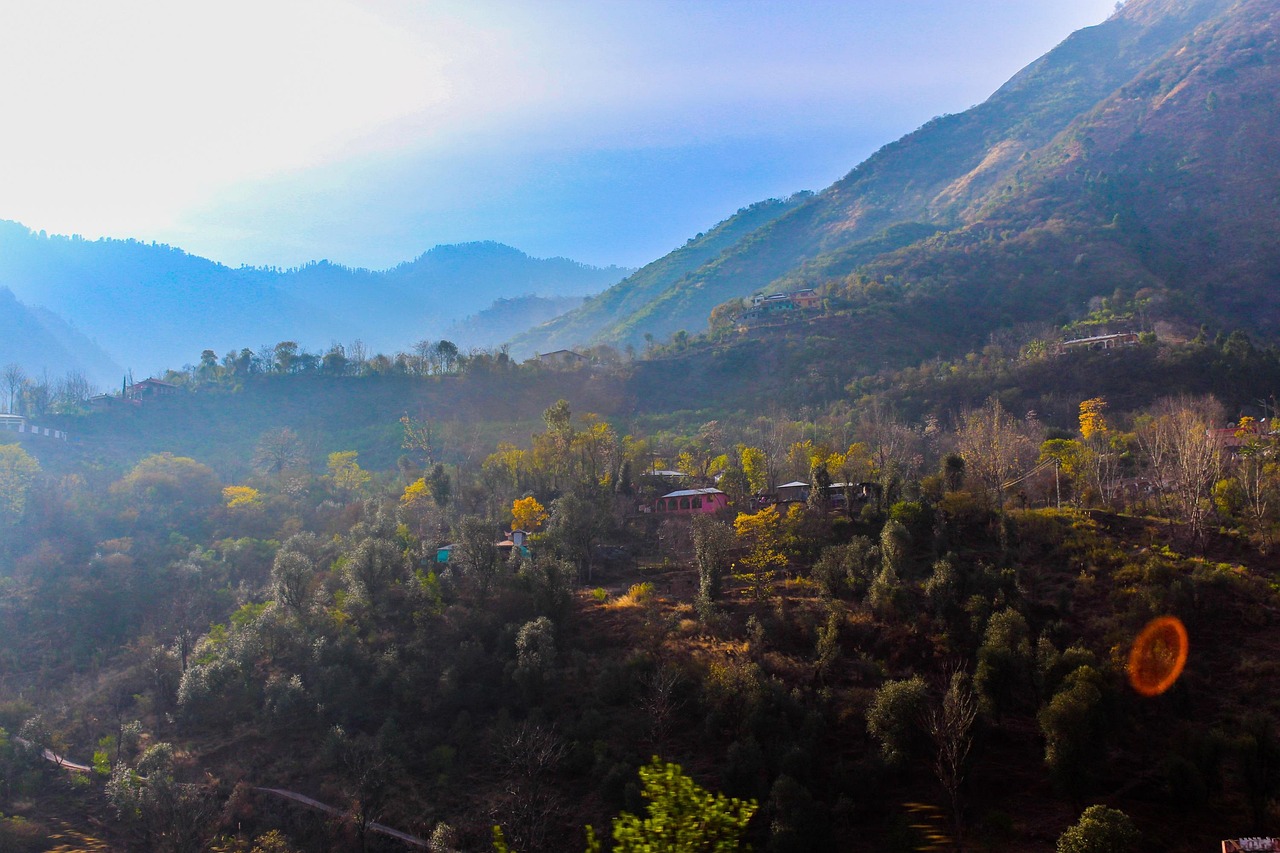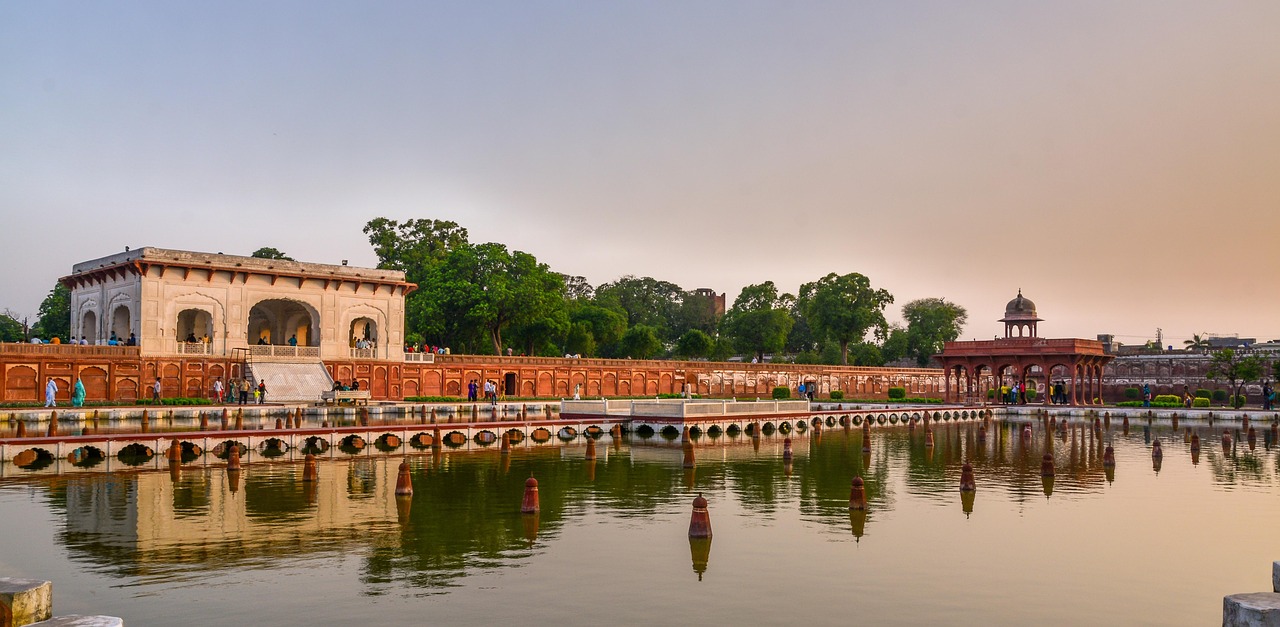Write by Habibur Rahman
Habibur Rahman is MPhil Scholar in Sociology, specializing in political sociology and the sociology of peace and conflict including extremism, terrorism and counter-terrorism.

Since the World witnessed a shift in security paradigms post 9/11, Pakistan has always been at the forefront of the war on terror and bore huge pressure to fight militancy and extremism. The scenario not only reshaped its internal policies but also deeply affected the socio-political and economic landscape. To counter terrorism, Pakistan adopted various strategies, ranging from military-led operations like Operations Zarb-e-Azb and Radd-ul-Fasaad to integrated frameworks such as the National Action Plan (NAP). Although these policies were effective in restoring the writ of the state immediately in conflict zones, these have been criticized for their long-term implications on the economic and political environment of the country.
The perpetual episodes of terrorism have exposed the country to irreparable vulnerabilities in economic fabric and domestic politics. As the 2023 report of Pakistan Economic Survey documents, the annual GDP growth is reduced by up to 2% due to terrorism-related disruptions. The cost of terrorism post 9/11 to date is estimated to have exceeded $150 billion in direct and indirect damages. On the domestic politics front, the counter-terrorism policies have often been politicized which restricts consensus on sustainable solutions to the underlying problems. Owing to these vulnerabilities on both the political and economic front, the current article aims to evaluate the changing dynamics of Pakistanʼs counterterrorism policy, with particular attention to recent changes and their implications on domestic politics and the economy of the country.
The Interplay of Counter-Terrorism and Domestic Politics
Historically, Pakistan’s military has framed itself as a legitimate and stabilizing force during times of political turbulence, taking over the country’s control three times since independence. These interventions were carried out on the pretext of mitigating political crises and restoring law and order. But contrary, the military interventionism proved counter-productive, leaving far-reaching consequences on democratic consolidation and civilian supremacy. Given the military-dominated nature of the country, the post-9/11 scenario brought about significant challenges for the military to contain terrorism. However, this also resulted in the politicization of the military which is evident from its control of devising and implementing counterterrorism and national security policies.
In order to promote civil-military collaboration while fighting terrorism from the grassroots, number of attempts have been made in the last two decades, which include but not limited to devising the National Action Plan and Paigham-e-Pakistan. These were comprehensive national security initiatives that showed potential for bipartisan support and hoped to bridge the underlying gaps between civil-military relations. As a civilian-led approach to address terrorism, the implementation of the NAP was swiftly co-opted by the military that sidelined provincial governments. This approach was criticized by the politicians. For instance, the chief minister of Baluchistan; Mir Abdul Quddus Bizenjo, publically criticized the exclusion of key political leaders from across provinces by stating in 2022 that while we bear the brunt of terrorism, our recommendations for addressing grassroots issues are often ignored by federal and military officials. Similarly, the military courts established under NAP also attracted stark criticism due to their potential for undermining civilian supremacy. The International Commission of Jurists has termed this move “a glaring surrender of human rights and fundamental freedoms.” Complementing the criticism, Shahzeb Ahmad, an expert and writer, has slammed this development by stating that “Military trials of civilians — no matter how horrific the allegations against them — are an affront to human rights and fundamental freedoms.” The prevailing circumstances show the extent of tension between the military and civilian authorities and manifest the dangers of bypassing the legal system by the military.
In the words of Samuel Finer, it is the political culture that defines the jurisdiction of military interventions. A society with a poor political culture lets the military as the sole entity to govern.

The prevailing divide and jurisprudential confusion in terms of designing and implementing counter-terrorism policies has led to the trust deficit between the masses and authorities, making the ground more fertile for political crises. Complementing this, a recent research study examining civil-military relations in Pakistan documents that the militaryʼs unbridled involvement in both commerce and politics has undermined public trust, which makes it challenging for a stable political system to prevail. In the same row, elucidating on the findings of my master thesis; investigating civiliansʼ trust in the state in the backdrop of the counterterrorism policy would be quite appropriate. My study found a significant level of distrust between the populace of conflict-ridden areas and the state institutions due to the politicization and militarization of counter-terrorism approaches. In the decades-long fight against terrorism, local communities feel alienated as military-centric strategies often bypass socio-political and economic grievances. Consequently, the growing military dominancy has created a rift between civil-military relations, undermining the countryʼs progress in the political sphere.
Acknowledging the drawbacks of kinetic measures and military-driven approaches to counter-terrorism and their implications on domestic politics, the operation Azme-Istehkam is a renewed attempt to seek consensus by ensuring provincial governments, community leaders, and religious factions are involved in decision-making. The mentioned operation aims to ensure that the military does not dominate decision-making at the expense of civilian governance. Despite these attempts, political fragmentation persists. There is growing disagreement over resource allocation, implementation mechanisms, and lack of clarity in religious factionsʼ stances on extremism. Besides, the intra and inter-party divisions often delay in devising and implementing long-term policies for mitigating terrorism. On citizensʼ behalf, the gap is consequential. Given the decades-long exposure to insurgency and counter-insurgency strategies, particularly in Khyber Pakhtunkhwa and Baluchistan provinces of Pakistan, residents perceive such initiatives as ineffective and unwilling to collaborate with the government. These perceptions hinder the efficiency and durability of the stateʼs interventions to contain terrorism, fueling trust erosion and undermining the efficiency of coordinated counter-terrorism mechanisms.
Nevertheless, the perception of the military as a guardian of national security remains entrenched. This is visible in how military spokespersons and defense ministers often shape public discourses around security issues. The lack of transparency, coordination, and trust between the civilian and military sectors in orchestrating preventive mechanisms has led to increased questions about political accountability and the rule of law, particularly with regard to the militaryʼs overreach in areas such as judicial oversight and press freedom. A distinguished fellow at the East Asia Forum, Shuja Nawaz has extensively analysed the militaryʼs influence on Pakistanʼs political landscape in his recent article “Military influence and political peril in Pakistan”. He documents that the growing hegemony of the military, particularly in manipulating electoral processes, continues to allow it to engineer the countryʼs economy and politics. The consequences may manifest in two contrasting scenarios. Similar to the circumstances in Indonesia in post 1998-99 financial collapse, the first scenario includes deeper political and economic crises, leading to a debilitation of the militaryʼs domination. The second situation is likely to be the revival of the coup culture, resulting in another era of military rule. Given the prevailing mistrust and divide, the latter is more likely to be avoided provided that the military finds a reliable political partner. If otherwise, political chaos and economic woes will perpetuate to wrack the country.
Almost all major political parties of Pakistan, particularly the Pakistan People Party (PPP), Pakistan Tahreek-i-Insaaf (PTI) and Pakistan Muslim League-Nawaz (PML-N) have persistently been seen questioning the legitimacy of military-led operations and the growing militaryʼs role in political decision making. In an exclusive interview with Geo News, the PPP leader Bilawal Bhutto Zardari stated that the very institutions that are critical to the long-term stability of Pakistan have been marginalised by the growing militaryʼs involvement in civilian affairs. He stressed that we cannot build a secure future without strengthening democratic culture in the country. Simultaneously, the parties in opposition also criticize military-centric governance; that it lacks political accountability, erodes civilian power, and marginalizes the will of the electorate. Military interventions have often been portrayed by political parties as unilateral actions that ignore the needs of local communities and the political agency of elected representatives. Building on these grounds, this operation could either reinforce the militaryʼs grip on national policy or provide a framework for civilian-led stability. The success or failure of the mentioned operation has the potential to directly determine the future trajectory of the political institutions in Pakistan.
To further enhance the capabilities of military to counter terrorism, Pakistanʼs parliament recently granted legal power to the Inter-Services Intelligence (ISI) to intercept telephone calls and messages. This move has sparked a significant concern among politicians and civilians alike and, simultaneously, has given birth to debates pertaining to civil liberties and the balance of power between civil institutions and the military. While writing to the Voice of America, Ayaz Gul notes that despite the fact this development per se presents a looming dilemma of ensuring security at the expense of fundamental liberties, the parties in government have authorized the respective agency to monitor communication and track criminal and terrorist activities. The current minister for Justice and Law: Azam Nazeer Tarar has supported this move by enforcing that “anyone who misuses the law will face action”. He further added that these measures would be limited to tracking terrorist and criminal activities and the government will ensure this does not infringe on the lives and privacy of people.
Nevertheless, the move was slammed by critics as unconstitutional and an assault on civiliansʼ liberties. While the government continues to defend legal cover for surveillance, the parties in opposition fear this would further the fortification of the agencyʼs grip and its alleged role in domestic politics. Similarly, the Pakistan Bar Council has vigorously condemned this action as a “blatant disregard” for the independence of the judiciary and rule of law, believing that it grants the spy agency sweeping power under the guise of national security. The article published by the Express Tribune has presented the views of Opposition Leader: Omar Ayub, who reportedly slammed the move, stating that “only a fascist government would grant an intelligence agency complete authority to tap citizensʼ phones”. He further added that “[PM] Shehbaz Sharif has practically cut his own throat with this decision.”
Likewise, the Human Rights Commission of Pakistan (HRCP) also expressed its deep concern about the stated decision. The watchdog maintained that it provides carte blanche to intelligence personals, decrying the move as a “flagrant violation of citizensʼ constitutionally protected rights to liberty, dignity and privacy under Articles 9, 14 and 19.” Keeping in view the poor track record of the subsequent governments and intelligence agencies including Military, this decision will continue to exacerbate the civil-military divide and fuel the countryʼs political crises. Given these analyses and the unbridled jurisdictions of the power vested in the respective agency, it is more likely to result in harassment, blackmailing and intimidation of both the government and civil society alike.

Counterterrorism and the Economy of Pakistan
Over two decades, terrorism and the strategies to curtail it created both a quantitative and structural chasm in the countryʼs economic fabric. Listing implications are endless. Although the devastation it caused to public resources, trade, and investor confidence is categorical. According to the Pakistan Institute for Peace Studies (PIPS), the most turbulent years (2008-2014) witnessed economic losses, which exceeded $20 billion annually due to the destruction of critical infrastructure, reduction in industrial activities, and decline in foreign investment. Collectively from 2001 to 2023, the approximation of the cost Pakistan paid to counter terrorism is $150 billion. In 2023 alone, the defense budget of the country was increased by 20%, making $10.4 billion solely for countering internal threats. As the major chunk of the budget has been diverted for security purposes, it has left little space for the countryʼs investment in important social development projects, with long-lasting effects on the nationʼs human development index which stands at 161 out of 191 countries globally.
The recent developments in the countryʼs efforts to counter terrorism under operation the Azm-e-Istehkam, which aims to mitigate economic vulnerabilities by integrating socio-economic dimensions into security measures, is an effort to secure global investment like the CPEC project. Given the projectʼs significance in terms of developing infrastructure and revitalizing the energy sector of Pakistan, the operation is aimed at enhancing security for industrial zones and Chinese personnel and preventing disruptions caused by attacks on projects like power plants and roadways. To ensure the operation meets its objectives, the Economic Coordination of Pakistan (ECC), which is the highest economic body in the country, has sanctioned a $215 million supplementary fund in the current fiscal year for strengthening defense projects. Due to the militaryʼs substantial role in both economic and political affairs, the allocation of such a significant amount in the guise of defense and security has attracted widespread attention and criticism. This has sparked debates over the balance required between security expenditure and critical public services like health and education.
Foreign direct investment (FDI) in Pakistan in 2024 remains 40% lower than pre-2008 levels, which reflects a persistent hesitancy among global investors. The energy sector, though, shows signs of resilience, with renewed investments from China and the Gulf states. Power generation projects funded under CPEC have added 12,000 MW to the grid since 2015, alleviating the chronic energy crisis and reducing economic bottlenecks. Nevertheless, the indirect costs of terrorism—such as disrupted supply chains and psychological impacts on the workforce—continue to hinder full recovery. For instance, the textile sector, which accounts for 60% of Pakistanʼs exports, has repeatedly suffered production halts due to terrorism in industrial hubs. In light of ongoing political crises, the countryʼs economy is passing through narrow circumstances. Experts such as Amina Khan and Waqas Sajjad have noted that with the rising rate of the dollar to an unprecedented level, Pakistanʼs economy faces immediate implications. According to them, “this points to short and long-term consequences, with the new incoming government unable, and perhaps unwilling, to provide policies to reverse the negative trends”.
Looking forward, the economic trajectory of Pakistan will be largely influenced by the efficiency and durability of counter-terrorism measures. Ensuring the security dilemma is hoped to stabilize investor confidence and contribute to increased FDI by 10% annually. However, this can only be achieved by addressing systemic barriers: including but not limited to; the paralyzed judiciary, military-led public policy, and weak governance, pushing the countryʼs economy into the quagmire of stagnation.
Although the integration of socio-economic measures into counter-terrorism policies offers a promising strategy, the breadth and genuineness needed to curtail the root causes of the problem, such as poverty alleviation, education and sensitization in terrorism-prone areas, and effective implementation of the post-war reconstruction framework remains missing. Heeding not to address these grassroots factors risks perpetuating the cycle of instability.
Conclusion
In light of these analyses, the recent developments in Pakistanʼs counter-terrorism policy reflect flexibility in terms of political and economic integration. Despite attaining short-term success, previous military operations are witnessed to have constrained democratic processes and fueled political fragmentation. Bridging this divide, the shift toward more integrated strategy, such as Azme-e-Istehkam is indispensable, which ensures collaborative governance. However, the key challenge hindering the realization of an inclusive approach and warrants immediate attention is the political fragmentation and distrust between the military and civilian sectors.
In order to ensure the success of counter-terrorism policies, domestic political stability is indispensable. Doing so necessitates an urgent need to develop mutual consensus across political, religious, and ethnic lines for maintaining continuity and credibility in anti-terror initiatives. Because counter-terrorism tactics are perceived as being ineffective, there is an urgent need for reform in judicial mechanisms and the law enforcement system that guarantees accountability and procedural fairness.
The economic devastation the country has gone through is enormous. Considering the perpetual exposure to terrorism and counter-terrorism, there are many key sectors, such as agriculture and tourism, which have been crippled by the prevailing circumstances and foreign investment has been deterred to a substantial extent. Security threats in the CPEC project present a picture of vulnerability that could otherwise do wonders for the countryʼs economy. In fact, more inclusive governance, sustained actions to address the root causes of extremism and terrorism, including economic disparities and educational deficits are not only critical to the success of Pakistanʼs counter-terrorism policy but also for sustainable domestic political environment and economic growth. The only ray of hope to pull the country out of the quagmire of political crises and economic stagnation is a cohesive political will with comprehensive socio-economic integration into the countering terrorism measures.
pdcc